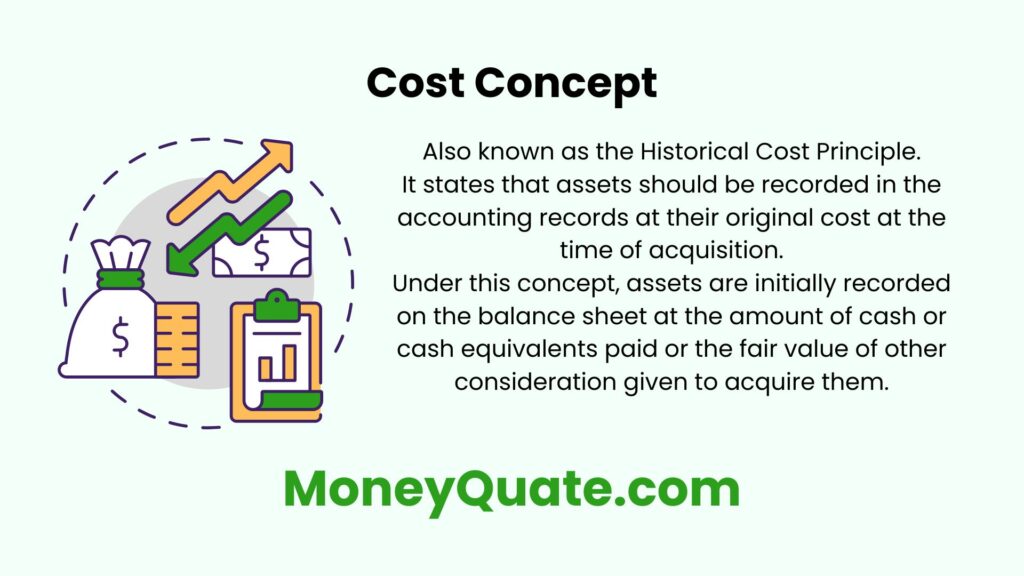The cost concept, also known as the historical cost principle, is a fundamental accounting principle that states that assets should be recorded in the financial statements at the amount paid or the consideration given to acquire them at the time of their acquisition.
In simpler terms, it means that assets are initially recorded on the balance sheet at their original purchase cost.

Contents
- 1 Explanation
- 2 Importance
- 3 Examples
- 4 FAQs
- 4.1 Why is the cost concept important in accounting?
- 4.2 Does the cost concept apply to all types of assets?
- 4.3 What happens if the market value of an asset exceeds its historical cost?
- 4.4 Can the cost concept be overridden in certain situations?
- 4.5 How does the cost concept affect financial decision-making?
Explanation
Imagine you purchase a delivery truck for your business.
The cost concept dictates that you record the truck on your balance sheet at the exact amount you paid for it.
This ensures that the financial statements accurately reflect the resources invested in acquiring assets and the financial position of the business at a specific point in time.
Importance
Objectivity
The cost concept provides a reliable and objective basis for measuring and reporting asset value.
Since the purchase cost is typically supported by documentation such as invoices or receipts, it eliminates subjectivity in asset valuation.
Consistency
By recording assets at their historical cost, the concept promotes consistency in financial reporting over time.
It ensures that similar transactions are treated uniformly, facilitating comparability across different periods and entities.
Stability
The cost concept provides stability to financial statements by avoiding frequent changes in asset values based on fluctuations in market prices or estimates of future cash flows.
This stability enhances the reliability and credibility of financial information.
Examples
Property, Plant, and Equipment
When a company purchases machinery for its manufacturing operations, the cost concept requires it to record the machinery at the purchase price, including any expenses directly attributable to its acquisition, such as installation costs.
Inventory Valuation
Inventory is typically recorded at its cost under the cost concept.
This includes the cost of acquiring or producing the inventory items, including direct costs like materials and labor, as well as indirect costs like overhead.
Investments
Investments in securities such as stocks and bonds are recorded at their purchase cost under the cost concept.
Subsequent changes in market value do not affect their initial recorded value unless there is evidence of impairment.
FAQs
Why is the cost concept important in accounting?
The concept provides a reliable and objective basis for measuring asset values, ensuring consistency and comparability in financial reporting.
Does the cost concept apply to all types of assets?
Yes, the cost concept applies to most tangible and intangible assets, including property, plant, equipment, inventory, and investments.
What happens if the market value of an asset exceeds its historical cost?
Under the cost concept, assets are generally not revalued to reflect changes in market value.
However, certain assets may be subject to impairment testing if there are indications of a decline in value below their carrying amount.
Can the cost concept be overridden in certain situations?
In some cases, accounting standards or regulatory requirements may allow or require assets to be measured at fair value instead of historical cost, such as for certain financial instruments or investment properties.
How does the cost concept affect financial decision-making?
By providing a stable and objective basis for asset valuation, the cost concept enables stakeholders to make informed decisions based on reliable financial information, contributing to the overall transparency and integrity of financial markets.